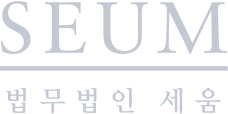[스타트업/기업자문,스타트업 법률가이드] #92. Korean Privacy Law Updates: Guidelines for Preparing Consent Forms
The Korean Personal Information Protection Commission (PIPC), which is a central administrative agency under the Prime Minister’s Office and one of the major data protection regulators in Korea, published guidelines for preparing consent forms on March 3, 2022.
Background
These guidelines replace the earlier guidelines for minimizing collection of personal information and for processing personal information online which contained some overlapping information related to consent for processing of personal information.
In the context of protection of personal information in Korea, the concept of consent has significance not only because it is widely accepted as the basis for collection of personal information but also because it serves as means for individuals to exercise the right to control regarding processing of the personal information unlike other requirements for processing of the personal information.
Focusing on this element of consent as a basic right for individuals, the new guidelines provide for the recommendations for obtaining consent, method of preparing the consent form, and examples of consent forms.
Recommendations
The recommendations include (i) minimizing the personal information to be processed, or collected, at the time such personal information is required to be disclosed to third parties as required, if any; (ii) providing the relevant notice in clear language, including the notice related to unique identifier or sensitive information which require a separate consent; (iii) confirming the intent to consent by opt-in rather than opt-out, including via legal representative in the case of children under age 14; (iv) guaranteeing the right to choose (for example, by allowing those who opt-out to proceed to the next step).
The guidelines further provide specific recommendations such as using larger font size to distinguish certain matters deemed important such as unique identifier, sensitive information, and the period of retention and use of personal information.
References
Finally, the guidelines provide examples of consent forms checklists as references and tools for preparing the individual consent forms. They include general forms for the area of human resources, education, health, travel, construction, and broadcasting industries.
Conclusion
The guidelines show how PIPC is actively engaged in exercising its authority to continuously improve the protection of personal information.
In fact, PIPC also established new regulations and submitted proposals for amendment of the current Personal Information Protection Act last year which is now pending approval by the National Assembly.
Following such updates would support businesses in Korea to ensure compliance with the Korean laws, manage relevant risks, and avoid penalties, such as administrative sanctions.
본 자료에 게재된 내용 및 의견은 일반적인 정보제공만을 목적으로 발행된 것이며, 법무법인 세움의 공식적인 견해나 어떤 구체적 사안에 대한 법률적 의견을 드리는 것이 아님을 알려 드립니다. Copyright ©2022 SEUM Law.

